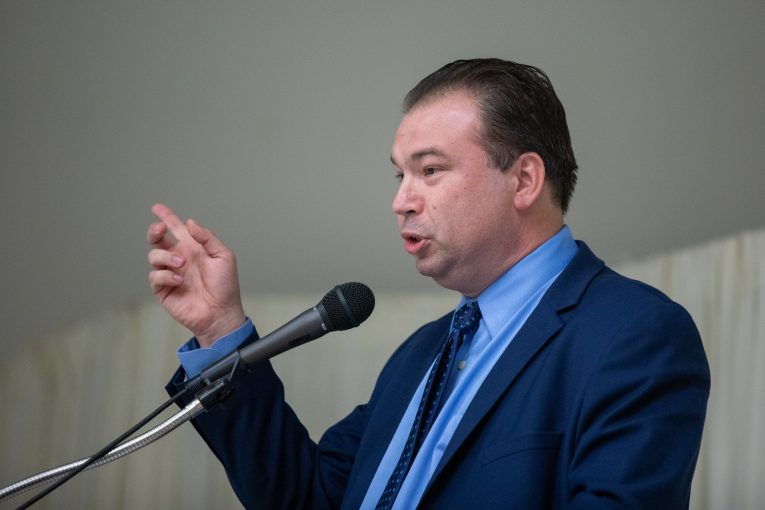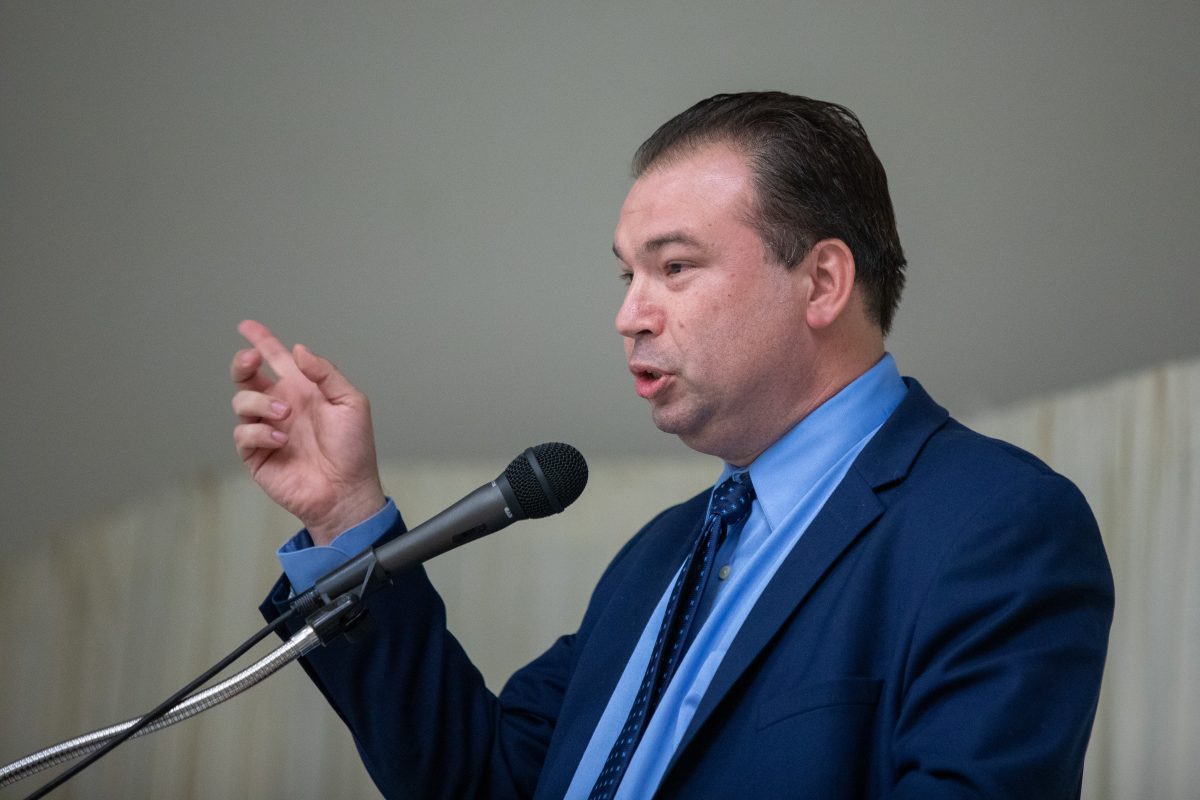

Wrongful convictions and execution cannot be eliminated with certainty
“Looking back” will feature reprints of articles that Jeff previously wrote while a columnist at The Westchester Guardian, which encompass topics that are applicable here in CA as well as across the country and not simply applicable to NY.
By Jeffrey Deskovic
My name is Jeff Deskovic, and at 17 years of age, I was wrongfully convicted of murder and rape. I serve 16 years in New York state prison, based upon a coerced, false confession and other fabricated evidence before being cleared on November 2, 2006, as a result of DNA showing the guilt of the real perpetrator.
Since my release, I have given many presentations at colleges, high schools, churches, and other community organizations on the subject of wrongful convictions. I have written numerous articles and given many televisions, print and radio interviews. I lobby lawmakers and sometimes testify at hearings.
My life is now dedicated to raising public awareness about wrongful convictions, and to systemic reform to slow down the rate at which they occur. I believe that public education is the first step towards legislative changes. That is what brings me to want to share a few things in response to Mr. Vito Spinelli’s Jan. 6 letters stated: “David Kaczynski’s Dec. 23 frontpage opinion column contain the same old bromides concerning the death penalty. The likelihood that innocent people would be executed has been eliminated with the development of DNA testing.”
WHAT YOU SHOULD KNOW
My own first-hand experience with wrongful convictions has placed me in a position to have learned much on the subject, even beyond the issues in my own case. I would like to point out some things: New York is currently third in the nation with 23 wrongful convictions exposed as such by DNA; as a nation, we are now up to 210.
DNA testing, however, is no panacea. First, DNA evidence is only available in 10% of all serious felony cases. The same systemic errors that cars wrongful convictions – false confessions, eyewitness misidentification, witnesses being given better plea-bargaining deals in exchange for testimony, bad lawyering, junk science and police misconduct – are present in non-DNA as well as DNA cases.
The recent exoneration of Martin Tankleff after 18 years, through the diligent work of an investigator who found witnesses pointing to the guilt of a third-party, illustrates this. But what about those cases where there is no DNA test, or the wrongfully convicted, having scant Financial resources, is unavailable to obtain quality legal assistance?
Second, even if DNA is present, it is not a guarantee that someone will not be wrongfully convicted. I was convicted, for example, despite DNA showing that team and found in the victim did not match me. It was only when, 16 years later, through DNA Databank,
I got lucky and the DNA matches the real perpetrator. If his DNA had not been in the databank through his being incarcerated on an unrelated crime, I would still be in prison.
Capital punishment poses a risk of executing innocent people. If I had been 18 years older rather than 16 when this crime happened – just two years older than what I was I have no doubt I would have received a death sentence. It was a brutal crime and there was community outrage, and I was convicted of rape along with murder, and aggravating circumstance that can make a murderer a capital rather than a non-capital case.
My appeals were exhausted in 2001, and I was not cleared until 2006. Conceivably, I would not have been alive to have been cleared.
ERRORS ALWAYS POSSIBLE
No systemic reforms at all have been passed; therefore, the risk of executing innocent people is high, as the 10 murder convictions that have been overturned in New York since 2000 illustrates. But even if all of the reforms in the world were enacted, it would not guarantee that there would be no wrongful convictions. The system is run by human beings, and we all sometimes make mistakes under the best of circumstances.
Being wrongfully imprisoned is bad enough; having a threat of execution hanging over one’s head, thereby placing a clock on how quickly one must prove once innocent, would make it indefinitely worse.
“Jeffrey Deskovic, JD, MA, is an internationally recognized wrongful conviction expert and founder of The Jeffrey Deskovic Foundation for Justice, which has freed 7 wrongfully convicted people and helped pass 3 laws aimed at preventing wrongful conviction. Jeff is an advisory board member of It Could Happen To You, which has chapters in CA, NY, and PA. He serves on the Global Advisory Council for Restorative Justice International, and is a sometimes co-host and co-producer of the show, “360 Degrees of Success.” Jeff was exonerated after 16 years in prison-from age 17-32- before DNA exonerated him and identified the actual perpetrator. A short documentary about his life is entitled “Conviction“, and episode 1 of his story in Virtual Reality is called, “Once Upon A Time In Peekskill“. Jeff has a Masters Degree from the John Jay College of Criminal Justice, with his thesis written on wrongful conviction causes and reforms needed to address them, and a law degree from the Elisabeth Haub School of Law at Pace University.
To sign up for our new newsletter – Everyday Injustice – https://tinyurl.com/yyultcf9
Support our work – to become a sustaining at $5 – $10- $25 per month hit the link:





